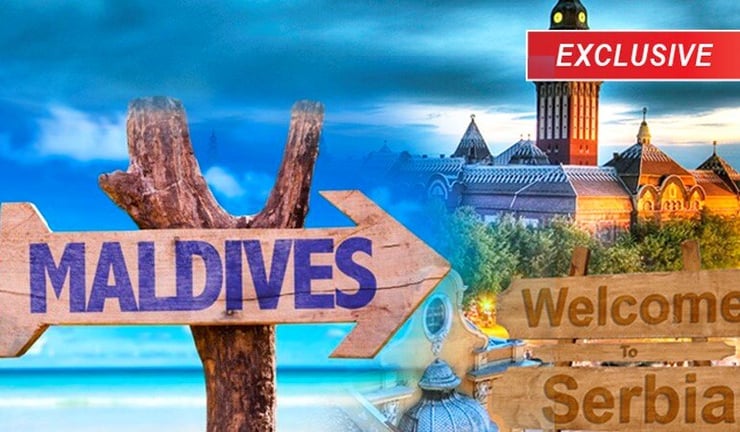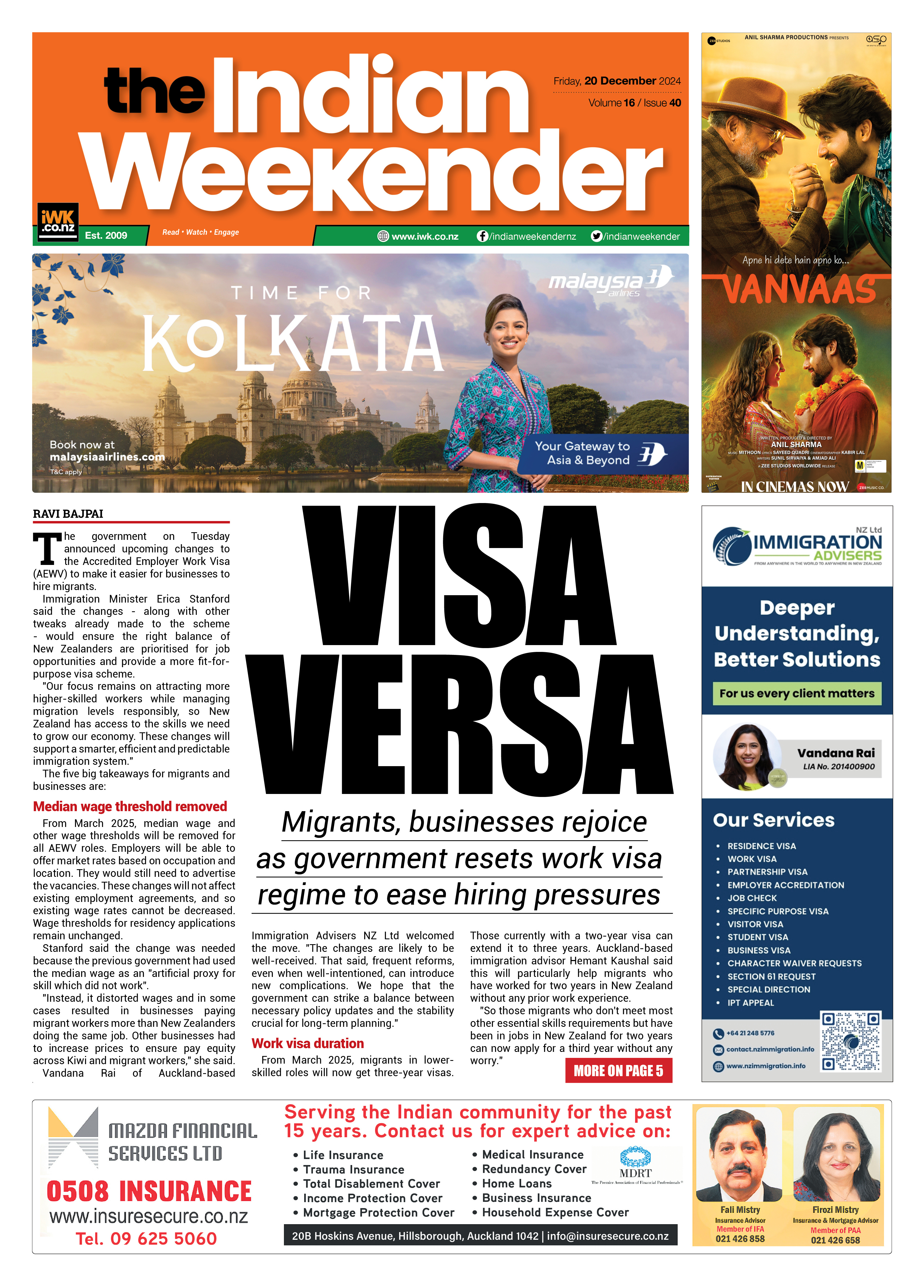NZ’s strict border controls bring windfall to distant countries

Travellers to NZ from India drop by more than 96 percent, get introduced to other enticing destinations enroute.
New Zealand has always been a dream tourist destination for people across the globe. The natural beauty of the country has always attracted tourists for decades. But the Covid 19 pandemic and the subsequent border closure by the NZ government in March 2020 has changed this scenario. Undoubtedly, tourism in NZ has taken a setback due to the border closure coupled with strict immigration policies and the difficulty in acquiring a MIQ voucher.
According to Stats NZ, the total arrival in NZ in the year ending August 2019 (pre Covid-19) was 7,077,335, it was 4,203,263 for the year ending August 2020, and was just 400,256 for the year ending August 2021.
In the August 2021 year compared with the August 2020 year, the number of overseas visitor arrivals was 211,000, down by 2.2 million. Moreover, In the August 2021 year compared with the August 2020 year, the number of NZ-resident traveller arrivals was 139,000, down by 1.6 million.
Indian Weekender spoke to industry experts to find out more about this precipitous decline and what they think this government should do to bring back tourism’s past glory.
Sijo Abraham of Sehion Tours & Travels says, “Tourism is the most affected industry in NZ due to the Covid pandemic. Many travel agencies and tour operators are finding other jobs to sustain themselves. Tourism industries are on the verge of extinction.”
Mukesh Mann of Mann Travels, says, “Before Covid-19, travel and tourism had become one of the most important sectors in the NZ economy. NZ is a tourism-dependent country, and this pandemic impacts the travel industry severely. There is still ambiguity with regards to the timeliness of opening the borders for international tourists and for Indians who can travel to NZ without taking a stopover from another country.”
There is no denying that the border closure, along with other issues like MIQ as well as travelling to green countries such as Serbia, Maldives or Dubai from high-risk countries including India has played its part in the decline of tourism in New Zealand.
If one looks at the drop in people travelling to NZfrom India, it may be noted that while overseas visitor arrivals from India in the year ending August 2019 was 64,899, it went down to 44,299 in the year ending August 2020 and just 1390 in the year ending August 2021. It means there is a decline of 96.9 percent between the year ending August 2020 and the year ending August 2021.
In terms of NZ residents arrival from India, while it was 80,655 in the year ending August 2019, it dropped to 64,499 in the year ending August 2020 and just 2808 in the year ending August 2021.
On being asked about how the business has dropped especially from India, Mukesh says, “Our business from India has declined by 95 percent. We have managed to bring back around 150-200 people through Dubai, Maldives and Serbia. However, due to each country's borders, visa and entry restrictions, most people are not eligible to visit NZ. Some of those who are eligible cannot spend the money because the prices coming through the third country (transiting country) are quite high. Due to this, they are facing financial hardship and stress to be outside India or in other words in a third country (transiting country) before entering NZ.”
Undoubtedly, many countries have now opened their borders for tourists and are benefiting from it. And for these countries, the restriction that NZ has imposed is proving to be a blessing in disguise. According to current NZ travel advisory, apart from NZ citizens and their immediate family members, New Zealand residents and other eligible visa holders are required to spend 14 days in a low-risk country such as Serbia, Maldives and Dubai, when travelling from a high-risk country such as India as well as 14 days in a MIQ facility.
The Statistical Office of the Republic of Serbia gives an insight into this development: in August 2021, compared to August 2020, the number of tourist arrivals was 32.6 percent greater, while the number of tourist overnight stays was 23.3 percent greater. In August 2021, compared to August 2020, while the number of overnight stays of foreign tourists was a whopping 359.7 percent greater
Talking about how the tourism of these countries has taken a boost, Mukesh says, “Serbia, Maldives and now Dubai became the transit point of the Indian travellers heading to NZ after they banned their direct entry from April. Indians are taking these routes and spending a huge amount on air tickets and accommodations. It has certainly given a boost to tourism in Dubai, Serbia and Maldives. Not only for the transit during this covid period but in general, the elite class of Indians is also known to spend big money on holidays. As tourists are not allowed to travel to NZ, the opportunity to boost the economy is lost to other countries."
Sijo, too, agrees: "Some countries like Serbia, Maldives, and Dubai allow people in those countries with proven vaccination status and they already promoted tourism and the people who are travelling there are benefitting their tourism. Whereas in NZ tourism is 100% decline due to covid border restrictions.”
So, What do they think the NZ government should be doing to increase tourism in NZ?
“The NZ government has to adopt the same strategy which Canada, UK and other countries are following. With the speed of vaccinations in India and other countries, and most know that to travel they need to get a double dose, for WHO-approved vaccines like Astrazeneca's Covishield, the NZ government can start the process like home quarantine for fully vaccinated NZ citizens, PR holders and relatives of these category citizens, who want to visit for short term stay for tourism, and also a pre and post covid test before and after flight travel,” opines Mukesh.
Sijo agrees to the same and signs off by saying, “The government could take some measures to bring tourists to NZ, which will boost tourism and ultimately the economy. Border restrictions need to be loosened for vaccinated travellers. People who had two doses of vaccination should be allowed to enter New Zealand, or those people should be allowed home quarantine.”





